Horizon
Season 52
s52e01 / The Truth About Meteors: A Horizon Special
3rd Mar '13 - 9:00pm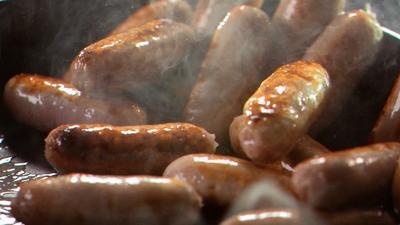
On a bright, cold morning on 15th February 2013, a meteorite ripped across the skies above the Ural mountains in Russia, distintegrating into three pieces and exploding with the force of 20 Hiroshimas. It was a stark reminder that the Earth's journey through space is fraught with danger. A day later another much larger 14,3000 tonne asteroid, passed within just 17,000 miles of the Earth.
Presented by Professor Iain Stewart, this film explores what meteorites and asteroids are, where they come from, the danger they pose, and the role they have played in Earth's history.
s52e02 / The Creative Brain: How Insight Works
14th Mar '13 - 9:00pm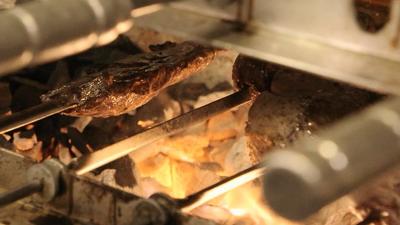
Scientists are using some strange techniques in an effort to work out how moments of creativity come into the human brain. They have come up with a series of puzzles and brainteasers to draw out our creative behaviour, while the very latest neuroimaging technology means rthey can actually look inside our brains and witness the creative spark as it happens.
s52e03 / How to Avoid Mistakes in Surgery
21st Mar '13 - 9:00pm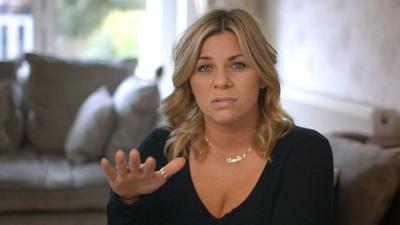
A&E doctor Kevin Fong finds out how doctors can avoid making mistakes in the high-pressure, high-stakes world of the operating theatre.
He sets out to learn how other professionals make life and passing decisions under pressure, from airline pilots facing emergencies, to the Fire Service dealing with lethal blazes, to the world of Formula One pit crews. Kevin discovers how all these fields are helping to make surgery safer.
s52e04 / The Truth About Taste
28th Mar '13 - 9:00pm
Taste is our most indulgent sense but it is only in recent years that we have started to understand why we really love the foods we do - and it is a lot more surprising than you might think.
There may a way to make food taste sweeter without adding any extra sugar and it is all down to a trick that happens in your brain. Horizon meets the scientist who has grown the perfect tomato, that is sweeter and juicier than anything you are likely to find on a shelf, as well as the men and women hoping to become elite, professional tasters.
s52e05 / Mend Me: A Horizon Guide to Transplants
27th Mar '13 - 9:00pm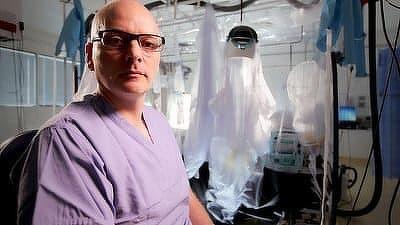
Transplant surgery has now reached incredible heights, from achieving full face transplants to growing organs in the lab. This Horizon Guide looks back at the extraordinary odds doctors and patients have had to overcome to achieve these amazing breakthroughs.
What we now take for granted has been a hard won struggle, both for the patients who were willing to gamble their lives and the doctors who faced ethical and medical dilemmas in the name of progress. Michael Mosley looks through the Horizon archive, identifying the key turning points for transplant surgery to explore how far science can go in its bid to prolong life.
s52e06 / The Age of Big Data
4th Apr '13 - 9:00pm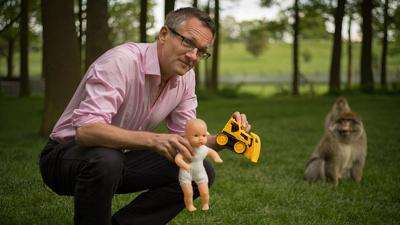
The show talks to some of the people at the forefront of the data revolution and takes a look at the possibilities and the promise of the age of big data.
s52e07 / Tomorrow's World
11th Apr '13 - 9:00pm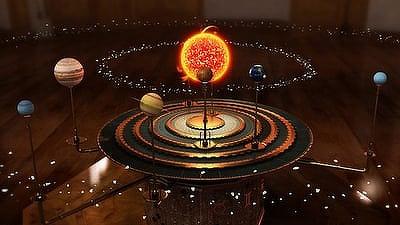
Liz Bonnin takes a look at the world of invention as she reveals some of the people and technologies set to transform all our lives in the years to come.
s52e08 / The Secret Life of the Cat
13th Jun '13 - 9:00pm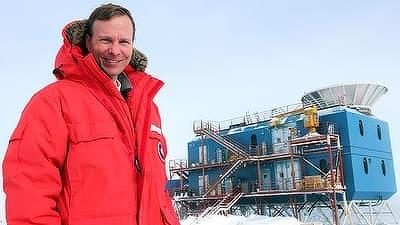
Fifty cats in Surrey are fitted with GPS collars to track their every movement, and cat-cams record their unique view of the world.
s52e09 / Little Cat Diaries
14th Jun '13 - 9:00pm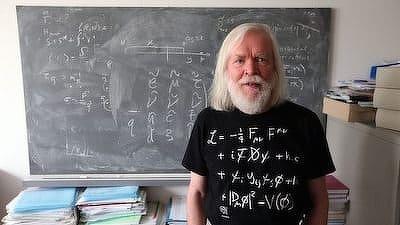
Fifty cats are fitted with GPS collars to track their every movement, and cat-cams record their unique view of the world.
s52e10 / Fracking
19th Jun '13 - 9:00pm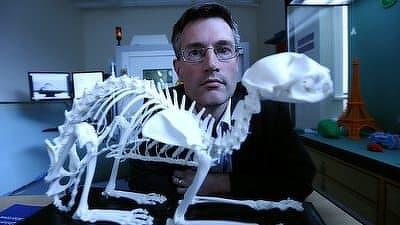
Iain Stewart takes a look at a new and controversial energy rush for the natural gas found deep underground. To get it out of the ground it involves hydraulic fracturing also known as fracking.
s52e11 / Swallowed by a Black Hole
26th Jun '13 - 9:00pm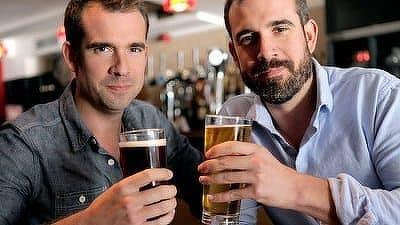
The black hole in the middle of the Milky Way is getting ready to feast during the middle of the summer. A gas cloud three times the size of Earth has strayed within the gravitational reach of our nearest black hole.
s52e12 / What Makes Us Human?
3rd Jul '13 - 9:00pm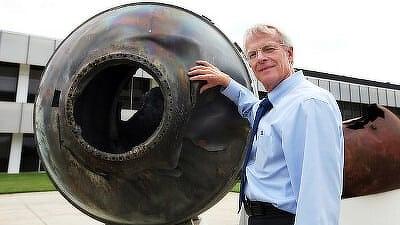
Alice Roberts, who is currently pregnant with her second child, wants to discover what makes a human. Humans share 99% of our DNA with chimpanzees and yet from the moment of birth, our lives are very different.
s52e13 / The Truth About Personality
10th Jul '13 - 9:00pm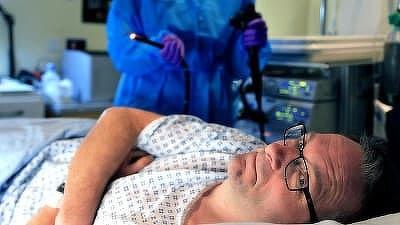
Michael Mosley takes a look at the latest theories on how our personalities are created and whether it is possibe that they can be changed.
s52e14 / What's Killing Our Bees
2nd Aug '13 - 9:00pm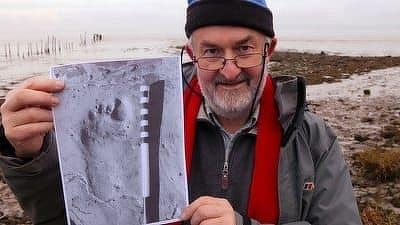
The show attempts to find out the reasons why there are fewer bees around than there used to be.
s52e15 / Monitor Me
12th Aug '13 - 9:00pm
Kevin Fong takes a look at the current increase in apps and gadgets designed to help people monitor their health.
s52e16 / Defeating the Hackers
19th Aug '13 - 9:00pm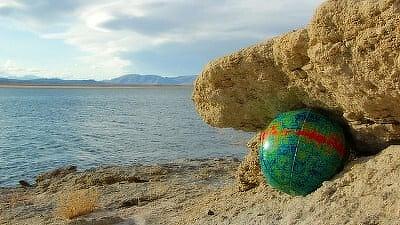
The show takes a look at the fast-paced world of people using computers to steal money and identities, as well as causing havoc with users online lives.
s52e17 / Dinosaurs
26th Aug '13 - 9:00pm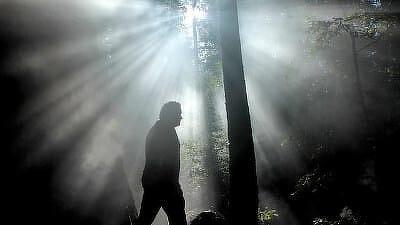
The series takes a look at the research carried out by Dr Mary Schweitzer, who found soft tissue and red blood cells in the fossilised bones of a 68-million-year-old T-rex, a breakthrough that wouldn't have looked out of place in the film Jurassic Park.
s52e18 / Comet of the Century
23rd Nov '13 - 9:00pm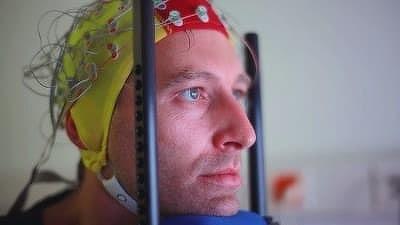
Comet Ison wuill soon make its closest approach to the sun and will be visible in both the evening and morning skies during December if it survives its close encounter with the star.
- View Season 1 Episodes
- View Season 2 Episodes
- View Season 3 Episodes
- View Season 4 Episodes
- View Season 5 Episodes
- View Season 6 Episodes
- View Season 7 Episodes
- View Season 8 Episodes
- View Season 9 Episodes
- View Season 10 Episodes
- View Season 11 Episodes
- View Season 12 Episodes
- View Season 13 Episodes
- View Season 14 Episodes
- View Season 15 Episodes
- View Season 16 Episodes
- View Season 17 Episodes
- View Season 18 Episodes
- View Season 19 Episodes
- View Season 20 Episodes
- View Season 21 Episodes
- View Season 22 Episodes
- View Season 23 Episodes
- View Season 24 Episodes
- View Season 25 Episodes
- View Season 26 Episodes
- View Season 27 Episodes
- View Season 28 Episodes
- View Season 29 Episodes
- View Season 30 Episodes
- View Season 31 Episodes
- View Season 32 Episodes
- View Season 33 Episodes
- View Season 34 Episodes
- View Season 35 Episodes
- View Season 36 Episodes
- View Season 37 Episodes
- View Season 38 Episodes
- View Season 39 Episodes
- View Season 40 Episodes
- View Season 41 Episodes
- View Season 42 Episodes
- View Season 43 Episodes
- View Season 44 Episodes
- View Season 45 Episodes
- View Season 46 Episodes
- View Season 47 Episodes
- View Season 48 Episodes
- View Season 49 Episodes
- View Season 50 Episodes
- View Season 51 Episodes
- View Season 52 Episodes
- View Season 53 Episodes
- View Season 54 Episodes
- View Season 55 Episodes
- View Season 56 Episodes